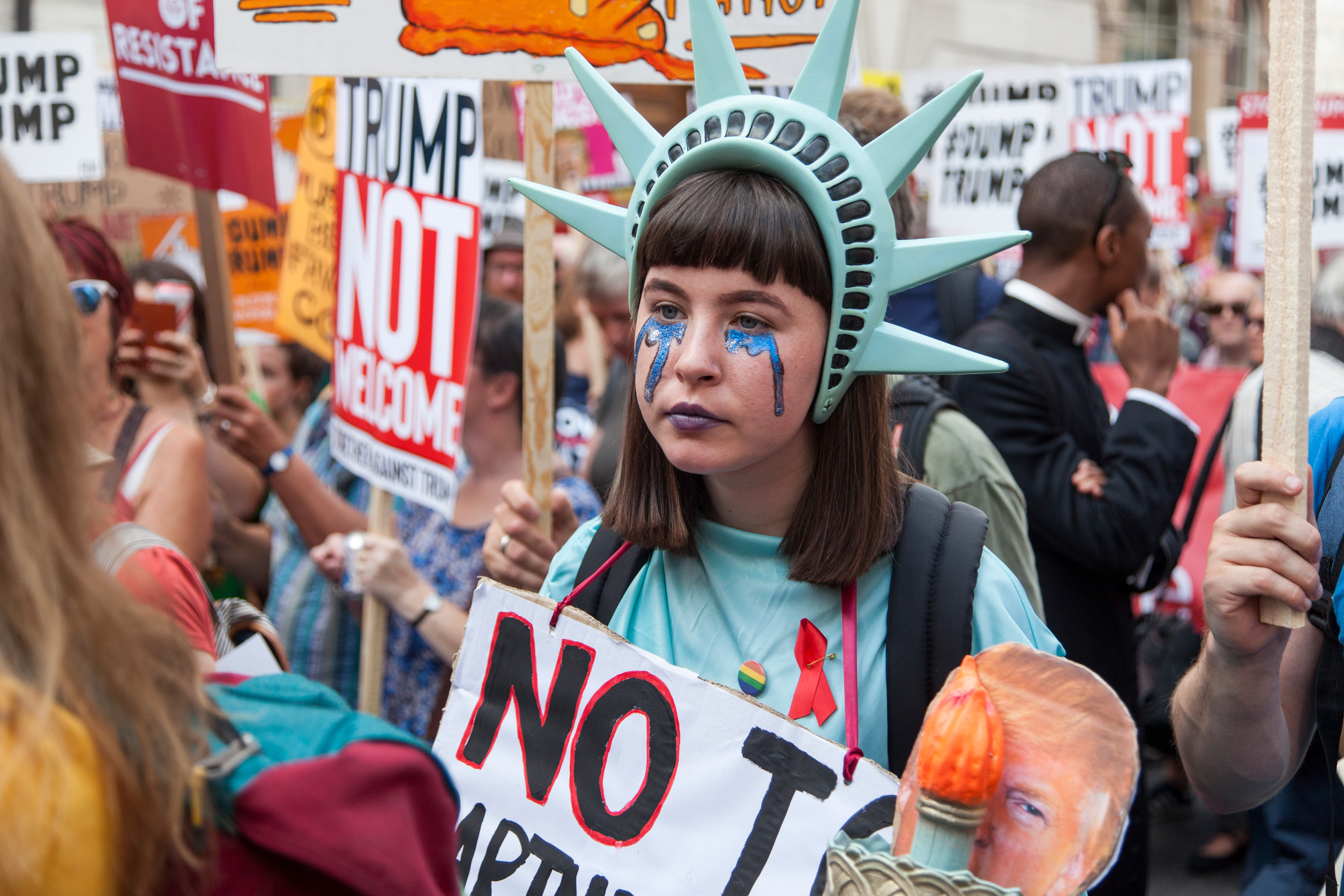China & Communism
Today, China is ruled by a Chinese Communist Party (CCP) without any redeeming qualities. Its parasitical leadership has murdered more of its own people than anyone in history; more than Hitler and Stalin combined. Right now it is conducting the systematic genocide of several ethnic, religious, and cultural minorities including the Uighurs and the Tibetans.
CCP promises to the people of Macau and Hong Kong of “one country, two systems” have been betrayed. Only a hideous caricature of liberty has survived their crackdowns. Even Han Chinese have been treated as disposable cattle, both in the past and recently during COVID lockdowns where countless people starved to death after being welded into their own homes.
The CCP leadership makes territorial claims that would reduce every single one of its neighbors into Chinese colonies. Their “Belt & Road Initiative” is a rebirth of late-19thCentury European Imperialism, complete with 99 year leases and unequal treaties.
Communist China’s homicidal masters insist that they will not follow Gorbachev’s Soviet Communists into the ashbin of history. Their top priority is to maintain their grip on unlimited power within China at any cost.
Second only to this is their eagerness to realign the world order to resemble the East Asian system before European contact. Then, China was the Central Flowery of culture, the Middle Kingdom regulating mankind in harmony with the celestial order. Japan, Korea, Indochina, the Philippines, Tibet, Sinkiang, Mongolia, and even Siberia were all overshadowed by China’s great civilization.
Their so-called “century of shame” ended all of this. From the 1842 Anglo-Chinese Opium War through the 1949 victory of Mao Tse-Tung’s CCP, China was in constant peril of being divided into colonies by Europe’s industrial powers aided by Meiji Japan and the United States. Only America’s Open Door Policy prevented this, by making China open to all foreign powers through a system of unequal treaties and 99 year leases.
Unlike the war-weary leaders of the old Soviet Union, today’s CCP leadership craves an opportunity to administer a sharp shock to the American psyche. They wish to reclaim universal hegemony by displacing the U. S. in thought, word, and deed. Were China to suddenly perform a “shock and awe” attack inducing panic in America and around the world, this Chinese Renaissance would be achieved. Peking, not Washington, would become the center of the world. And, the continuation of their Communist Dynasty would seem assured.
Taiwan is the key to all of this. If they can conquer this independent nation which was never part of Communist China, the CCP can justify their many mass murders as having been necessary for the resurgence of China. As the CCP has spared no expense to stoke fervent xenophobia, Chinese Nationalists will give them legitimacy.
If they can do so in a manner that shatters American power in East Asia and the Pacific, so much the better! This will permit the CCP leadership to spread Communism to South Korea, as well as to enslave or exterminate the entire Japanese race. They will have “unified” China, settled old grudges with their neighbors, and overturned the Western-oriented world order.
As the world has not seen a non-Western, un-Christian hegemon since the time of Genghis Khan, none of us has any idea how bad living under a Sino-centric world order would be. Those particularly Western notions of inalienable, God-given individual rights which lead to free markets and personal liberty have no place in classical Chinese civilization.
Instead of a focus on the individual, Classical Confucianism offered a philosophy of social harmony. In Confucianism, the family is the reality while each individual is a mere subset. This is why the family name precedes the personal one.
One’s individual choices do not lead to personal glory or distinction, as in the West. Instead, the potential to lose face discourages individual initiative while rewarding conformity. Social harmony, rather than personal fulfillment, is the basis for all institutions and customs.
However, the CCP rejects Confucianism for something far worse. They have scrupulously striven to erase it from living memory. The CCP’s leaders hearken back to a unified China’s first Emperor, Chin Shi-Huang-ti. Only eclipsed by Genghis Khan and Mao Tse-Tung as China’s greatest mass murderer, this First Emperor was a Legalist. Embracing naked force, he legislated every aspect of human life. Is it any wonder that bloody-minded Legalism appeals to Communists?
The lives of individuals of all classes were squandered profligately to serve the vanity and will of this Emperor. His mausoleum, a man-made mountain containing a tomb guarded by a terracotta army of more than 8,000 individualized statues, truly reflected his character. Tens of thousands died so that his memory might live on.
Chin Shi-Huang-ti was Mao Tse-Tung’s personal role model. As Chin established a unified China under central control, Mao would reform modern China in its image. The CCP declared that it was the humane qualities of family and willing public service within Confucianism that had made China weak. Calling Confucianism the “Four Olds”, Mao attempted to utterly eliminate it as a living force in Chinese culture. With his reformatted written and spoken Chinese language, his shortened naming conventions, his Great Leap Forward, and his Cultural Revolution, Mao came close to succeeding.
To understand such megalomaniacal monomania, one must appreciate the role that Communism has played in modern China. When faced by a technologically and even culturally superior West, Chinese leaders became frantic to match this new power.
Japanese leaders had quickly succeeded at this by completely overhauling the superficialities of their culture to become, “more Western than the Westerners”. This ability to effectively redesign their entire culture at will is uniquely a result of Japan’s Shinto faith and the role of the God-Emperor.
With an unmatched social cohesion rooted in the shared conviction that the nation and all of its people existed to serve this living deity, Japan replaced its samurai. They took on a Prussian Army, a British Navy, and an American industry and made these their own. With these, they built an industrial-era empire.
China could not do this. Historically, China’s great talent had been to avoid a Dark Age brought on by barbarian conquest by absorbing these rustic conquerors into their superior culture. Even the grandson of Genghis Khan had become largely Chinese in outlook. Their ancient culture was China’s strength.
Encountering the superior civilization of the industrialized West posed an unprecedented problem for China. Instead of acculturating militaristic primitives in a few short generations, it was Chinese civilization that became at risk of being assimilated by the West.
Cultural inoculation became China’s only hope of preserving its distinct culture over the long term. The Chinese would have to adopt something uniquely Western that was central to the West’s strength and recast it with Chinese characteristics. With such an antidote, by becoming Western in one way, China could become strong enough to remain recognizably Chinese in all other ways.
The first attempt at adopting such an inoculant was Christianity. In the mid-19th Century, the Tai-Ping Rebellion came very close to overthrowing the Ching Dynasty’s Chinese Empire. Led by a messianic figure who claimed to literally be Jesus Christ’s younger brother, the Tai-Ping took entire regions of China. Only by bringing in Western military experts like Britain’s Charles Gordon, who himself was later martyred for the British Empire at Khartoum, did the Ching (Manchu) Dynasty survive.
After this, Chinese nationalists led by their Dowager Empress attempted to defeat modern armies with Buddhist-derived traditional martial arts. Literally the plot of a Bruce Lee movie, the Boxer Rebellion ended differently than the cinematic fantasy. When righteous fists met aimed rifle fire, modernity triumphed.





